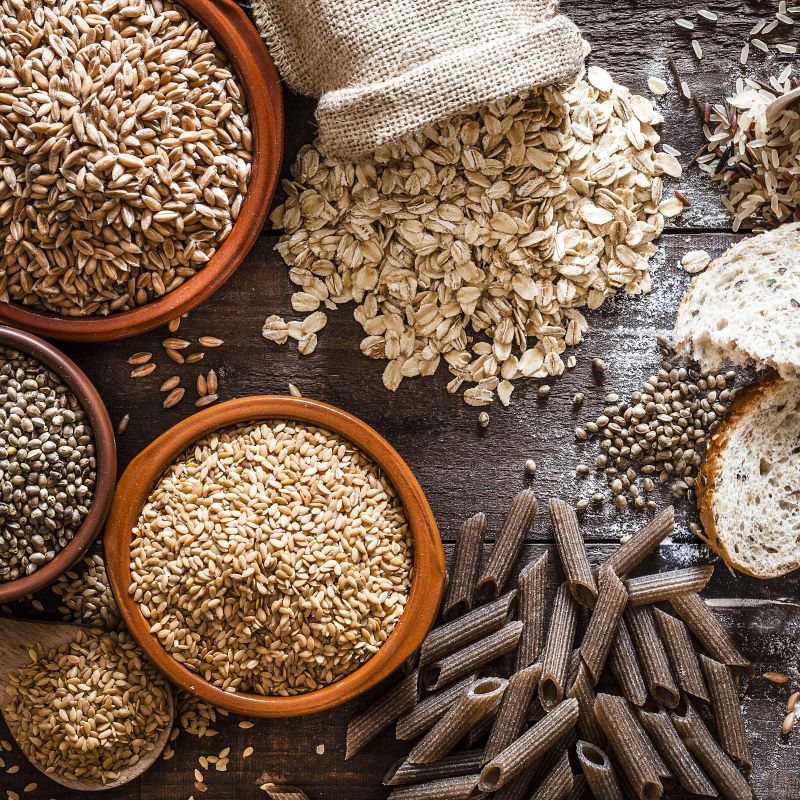An eight-week trial study comparing vegan and omnivore diets in 22 pairs of twins found that the former improves overall cardiovascular health. A correlation to healthy aging was also established from the vegan diet.
“The two most important (nutrients from the vegan diet) are higher fiber and lower saturated fat. There is strong evidence to indicate that both of these cause lowering of LDL-cholesterol (low-density lipoprotein cholesterol) levels in the blood, the bad type of blood cholesterol,” Dr. Christopher Gardner, professor of medicine at Stanford University and principal investigator of the study, tells Nutrition Insight.
“The higher fiber would also lead to a slower release of glucose in the blood and explain why the vegan group on average had a lower fasting insulin level.”
The majority of the dietary improvements took place during the first four weeks. The vegan participants had significantly lower low-density lipoprotein cholesterol (LDL-C) levels, insulin and body weight, which are associated with improved cardiovascular health.
The vegan participants and the omnivores, to a lesser extent, cut back on the three leading indicators that negatively impact cardiovascular health — saturated fats, increased dietary fiber and weight loss.
Controlling for genetics
The research focused on identical twins, which allowed the scientists to control for genetics and limit other factors that complicate research findings on diet and cardiovascular health, such as upbringing and lifestyle.
Healthy participants with no cardiovascular disease were selected from the Stanford Twin Registry, matching one twin from each pair with a vegan or omnivore diet. The findings were published in JAMA Network Open.
Both diets consisted of vegetables, legumes, fruits and whole grains, with no sugars and refined starch. However, the vegan diet was entirely plant-based, with no meat or animal products like eggs and milk. The omnivore diet included chicken, fish, eggs, cheese, dairy and other animal-sourced foods. Both experimental groups consumed healthy diets free of sugars and starch.
Both experimental groups consumed healthy diets free of sugars and starch.
“The greater bulkiness of plant foods compared to animal foods and the fiber likely led to those assigned to the vegan diet to be more satiated than their omnivore pairs, which could explain why the vegan individuals lost more weight than the omnivore siblings,” notes Gardner.
“Other components of a vegan diet could have been a high antioxidant level. All the dietary antioxidants are found in plant-based foods, not animal-sourced foods, and the vegan group ate more plant-based foods,” he says.
“Antioxidants help to prevent oxidative degradation in the body. Oxidative degradation can cause damage to the body and raise inflammation. Elevated inflammation in the body is an underlying factor for several of the leading causes of death — heart disease, cancer, stroke and diabetes.”
In contrast, new research suggests that 100% plant-based eating is not necessarily the best route to a healthy population and planet. Meat, fish, eggs and dairy are highly nutrient-dense and could play an indispensable role in diets and a healthy ecosystem, particularly in low-income nations.
The promise of healthy aging
During the trial’s first four weeks, a meal service delivered 21 meals weekly — seven breakfasts, lunches and dinners. The participants prepared their meals for the remaining four weeks. A registered dietitian was on call to offer suggestions and answer questions regarding the diets. The participants were interviewed about their dietary intake and journaled the food they ate.
The diets were generalizable and could be accessible to anyone. The findings further suggest that anyone choosing a vegan diet can improve their long-term health in two months, with the most significant changes observed in the first month.
Fasting insulin in vegan participants dropped about 20%. A higher insulin level is a risk factor for developing diabetes. The vegans also lost an average of 2 kg more than the omnivores. Based on this, the researchers believe a vegan or plant-based diet boosts longevity.
“A vegan diet can confer additional benefits such as increased gut bacteria and the reduction of telomere loss, which slows aging in the body. What’s more important than going strictly vegan is including more plant-based foods into your diet,” says Gardner.
“A plant-based diet high in vegetables, legumes, fruits, whole grains, nuts and seeds is strongly associated with good health. Eating more of these foods displaces foods of animal origin that may have an adverse effect on health due to high saturated fat or pro-oxidative factors.”
“Having fun with vegan multicultural foods like Indian masala, Asian stir-fry and African lentil-based dishes can be a great first step,” he concludes.
Meanwhile, the latest analysis by the Physicians Committee for Responsible Medicine demonstrates that replacing animal products with plant-based foods leads to weight loss, reduced cholesterol, reduced fat intake and increased fiber intake in overweight adults.

